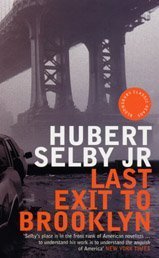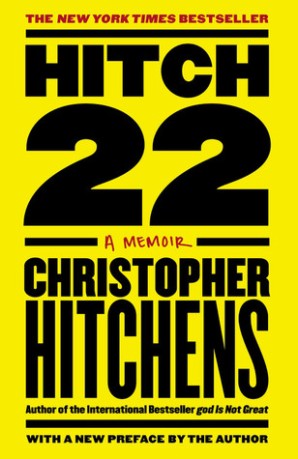Always suspect anyone who lays a claim on what art is supposed to be. And, as advice is being dispensed, keep an eye out for people in crease-free clothing. As well as any Buddhist monk who smiles sunshine and repeats the word ‘peace’ over and over while handing you a gilded card of Buddha with another peace written across it, rays of joyous golden light leaving the Buddha’s head, and then proceeds by gently shaking your hand. It shall infallibly follow that you will be handed a black leather-bound book with a pen that will ask you to submit your name, your address, and a donation amount. In such a case, wrinkles do not matter. But. Caveat Emptor! on the question of art.
How, however, should one approach a lurid memoir written by an ad man? In the same way as everything else I suppose, with the lowest degree of expectation, a considerable degree of guard (say 73 F) and most of all, without prejudice. It also tends to be best, to generally read introductions as afterwards as life itself should serve as an adequate introduction to any work of fiction, and certainly to that of a memoir. And that, dear reader, is how Augusten Burroughs made his entrance into my life. If there’s one thing that I’ll always have to grant those who work in the ad industry, it’ll always be their repellent way of grabbing people’s attention. How, then, does one avoid falling victim to, Running with Scissors?
 And what a cover to boast of as well. Being everything that the conventionally out-of-context blurbs on the back make it out to be, Running with Scissors, ultimately poses the pivotal question: do you or do you not believe Augusten Burroughs? Burroughs himself faced a similar dilemma with regard to his mother in the final chapter of his waning teenage years. And such is the controversy that the book creates for its readership; what can one believe in when the truth is challenged, and in some respects, always remains ambiguous?
And what a cover to boast of as well. Being everything that the conventionally out-of-context blurbs on the back make it out to be, Running with Scissors, ultimately poses the pivotal question: do you or do you not believe Augusten Burroughs? Burroughs himself faced a similar dilemma with regard to his mother in the final chapter of his waning teenage years. And such is the controversy that the book creates for its readership; what can one believe in when the truth is challenged, and in some respects, always remains ambiguous?
Without revealing the spoils of war, let me unequivocally state that my gut is with Burroughs. Let it also be clear that I do not know, nor care to know, if any part of his memoir is embellished or even downright false. I’ve seen enough Fact or Fiction? to grant drama a free reign, relatively. This after all is not some hack like Dan Brown trying to convince us to believe in sensational facts to accept a worldview. This is the story of a man trying to get across the jaded divide between his experiences and our lives, and if he is successful, to uplift and renew our spirits.
So say what one will of Augusten Burroughs, but if being prudent, then whatever the verdict is one must acknowledge that he is a skillful writer. A writer who knows how to craft engaging descriptions, such as this one, “Her white, handgun-shaped blow-dryer is lying on the top of the wicker clothes hamper, ticking as it cools.” Adding to them, however, a somewhat annoying, ceaseless barrage of brand names, whistling down every paragraph, which situates his prose in our, regrettably, commercially-saturated world. So what happens is that we end by encountering a work that, even when set several decades removed from our day, thanks largely to television, feels contemporary, and we, may even feel at home.
At home though we may feel, Augusten’s memoir is still full of riveting and really gross anecdotes and details. Such as the description where he relays to us a visual of an STI, or when he describes his own sexual experiences. But where but in writing can one be that candid? That is what makes the work compelling despite some of its shortcomings. Do we, for instance, really need to hear the clanging of threefold repetitions so tiresome in both poetry and prose? Certainly not. Does Burroughs, admittedly rarely, go on and on over trivial arguments? Yes. And yet as unpleasant as that is to encounter in life and certainly in writing, it is these very details that give his voice that air of authenticity and makes me feel that, in fact, this is a work dealing with life as it really is, going through many of its inane, absurd, trivial moments. Life and death arguments over whose job it is to remove the five-month old Christmas tree? You bet. Deep embarrassment–a crisis of Greek proportions–about the revealing note that he handed a crush? Certainly. And certainly forgivable. Was it a terrible choice to insert an excerpt of his next work after the epilogue? Oh yeah. A disgusting madman tactic with poor literary taste. Uh-huh. But even that I will pardon.
Because Mr. Burroughs has given me a beautiful series of laughs, twisted my heart, which upon its release, let me slide down my own memories of coming-of-age tales and travails that through the space of time and the newly acquired, humorous and lighthearted attitude (which is the real gift that Augusten presents his readers) has made it easy to look back at all that ‘crazy stuff’ and smile. Seriously, my friend, Augusten seems to whisper between the lines, if I made it through all that, and came away relatively sane, you too will be okay. Let us, at the very least, have some fun with the craziness of a dysfunctional family. After all we can all quote the beginning of, Anna Karenina, even those of us that have not read the book, but let us bear in mind that there is in fact something binding the children of unhappy families. And in that respect, they may find a home within the community of scarred individuals, who thanks to the disquiet engagement of writers like Burroughs, can see and overcome the isolating estrangement of individual pain while gaining strength to deal with it and to persevere.
So does Burroughs display the craftsmanship of Fitzgerald, the psychological depth of Dostoevsky, the elegance of Morrison, the . . . you get it. Can a memoir even be a work of art? If it can, was Burroughs successful? Or is his work, as Virginia Heffernan of the New York Times–after providing a lucid summary of the book–coldly concludes,
… lack[ing in] the fire and art that make literature different from life. Here in these memoirs, characters fade, drift or disappear; there is a desultory quality to the action; there are many, many loose ends.
I don’t know about you but to me that sounds like life. Perhaps I’m still too much in Chekhov’s grip, still under the belief that realism in art should strive to be the way life actually is, along with a strong personal preference for loose, ambiguous ends. Chekhov was often heavily criticized by his contemporaries for making his writing of country life boring, to which it was responded that country life is boring. Anything may be dramatized in the hands of a master, and though Burroughs is no Chekhov, his accomplishment should not be diminished.
Namely, sharing with others in a decently crafted, engaging form, the turkey-soup for the soul that his life turned out to be. A lot of the banal dialogue within his writing such as, “Come on, man. I just can’t stop thinking about you” is redeemed by the unique and hilarious experiences that he had, as well as by his knack for descriptions that easily transport the reader into his scenes.
I exhaled, blowing Marlboro Light smoke into the air, an opaque cloud that was the only moving thing in the room. It seemed to drift toward the ceiling, moth to bulb. We sat perfectly still, like we were listening for something.
And what I heard, was a compassionate voice telling stories out of a dire need to share the madness and show the triumph of having overcome it, without any inhibitions of hoping to be rewarded for doing so. And, that too, though vulgar from some aesthetic points of view (Gustave Gustave) is fine.

